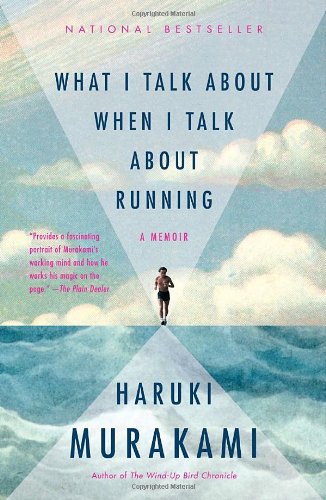In our First Edition series, we look back at the early works of established writers.
I never became much of a Haruki Murakami fan, much to the chagrin of every single friend of mine. He’s a total fave amongst the ladies, and I get it—there’s a dreaminess to his stories, there’s the whole magical surrealism bit, and there’s the lust and sexual hunger of his characters (it gets very sexy). I mean, Murakami nails it. But, really though, I just cannot read another one of his novels about beautiful, depressed, tortured Japanese teens living in their sad fantasyscape. So when my friend Andrew told me that he enjoyed Murakami’s memoir What I Talk About When I Talk About Running, I was hesitant to commit precious reading time to yet another Murakami release. I’m happy I did, though, because this book is so incredible that it caused my opinions toward Murakami to screech, halt, and flip around 180.
What I Talk About When I Talk About Running is Murakami’s sole nonfiction work. It’s also super short, which is great considering his latest novel 1Q84 ballooned to a daunting 928 pages long. It’s an obvious departure from his usual menu of offerings (see above), and I think that is the reason why I loved this one so much—this book is a very special one-off. As the title of the book implies, it’s primarily about the meditations of running, a chronological collection of essays and journal entries about Murakami’s foray into the world of marathon-training at the age of 33. But more than that, the book is also about the art of creative writing and the discipline it takes to become a writer. Murakami analyzes and explores the intersection of writing and running, and how that has affected his spirit over the course of his career as a writer. He gets intensely deep into the science of muscle memory, the ways that pain can transcend into nothingness. But he also recalls the simple joys of the daily run, like recognizing the same cute lady out for her morning ritual, or being able to acknowledge the fellow brethren of runners at marathons. He parlays the drive to becoming a stronger runner into becoming as a better writer, and proves that it is quite possible to renew life at 33. Your best years, in fact, may be far ahead of you.
The book, while a quick read, spans across many years of Murakami’s life, starting from his humble beginnings in Japan, to his much more successful years as an established novelist living in Boston, and beyond. I’m no runner and I certainly don’t consider myself a true writer just yet, but this book is so downright inspiring that it makes me want to be both. It makes me hope to run a marathon one day, even though the chances of that happening are slim (I’m forever a lazy piece of shit). But that’s all beside the point. What I Talk About When I Talk About Running made me realize I was wrong about Murakami the whole time. Now, if only he’d tell more stories about his personal life…![]()
